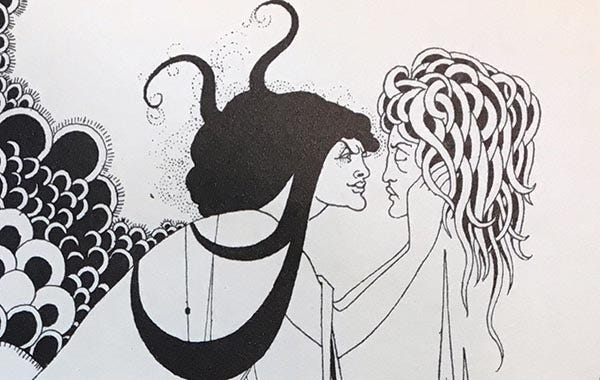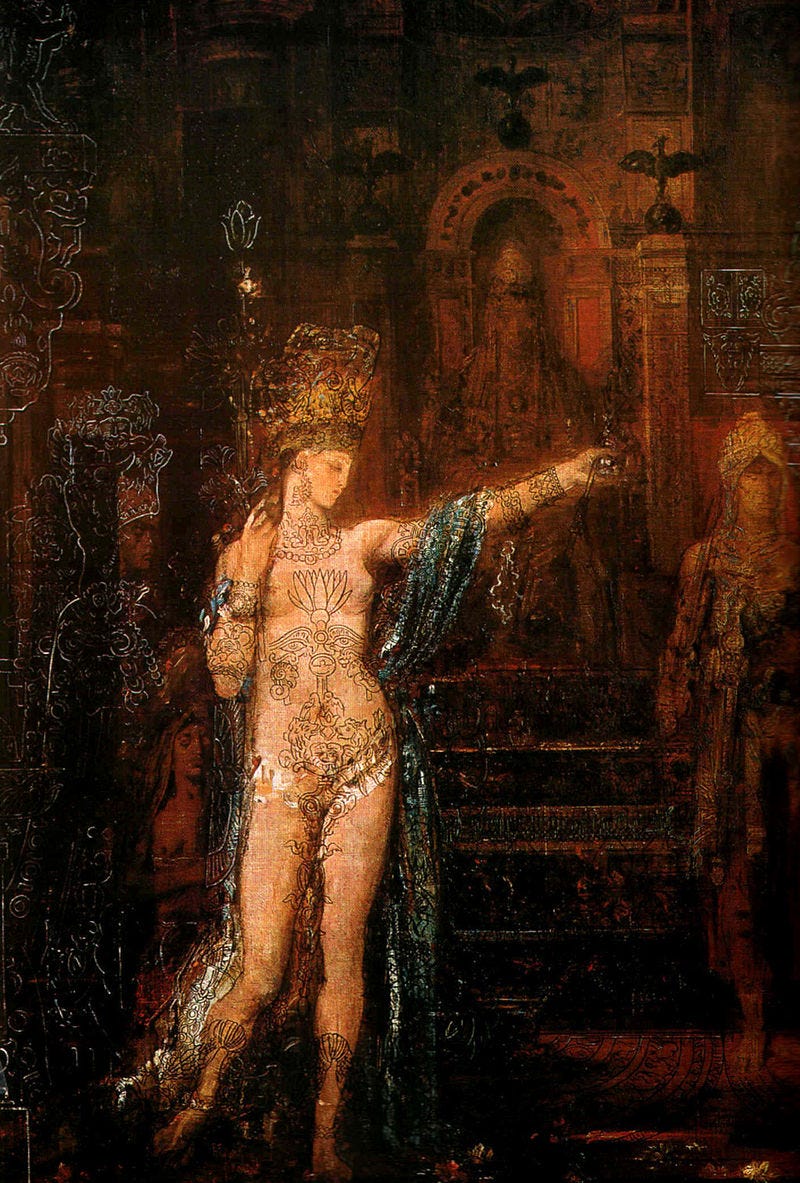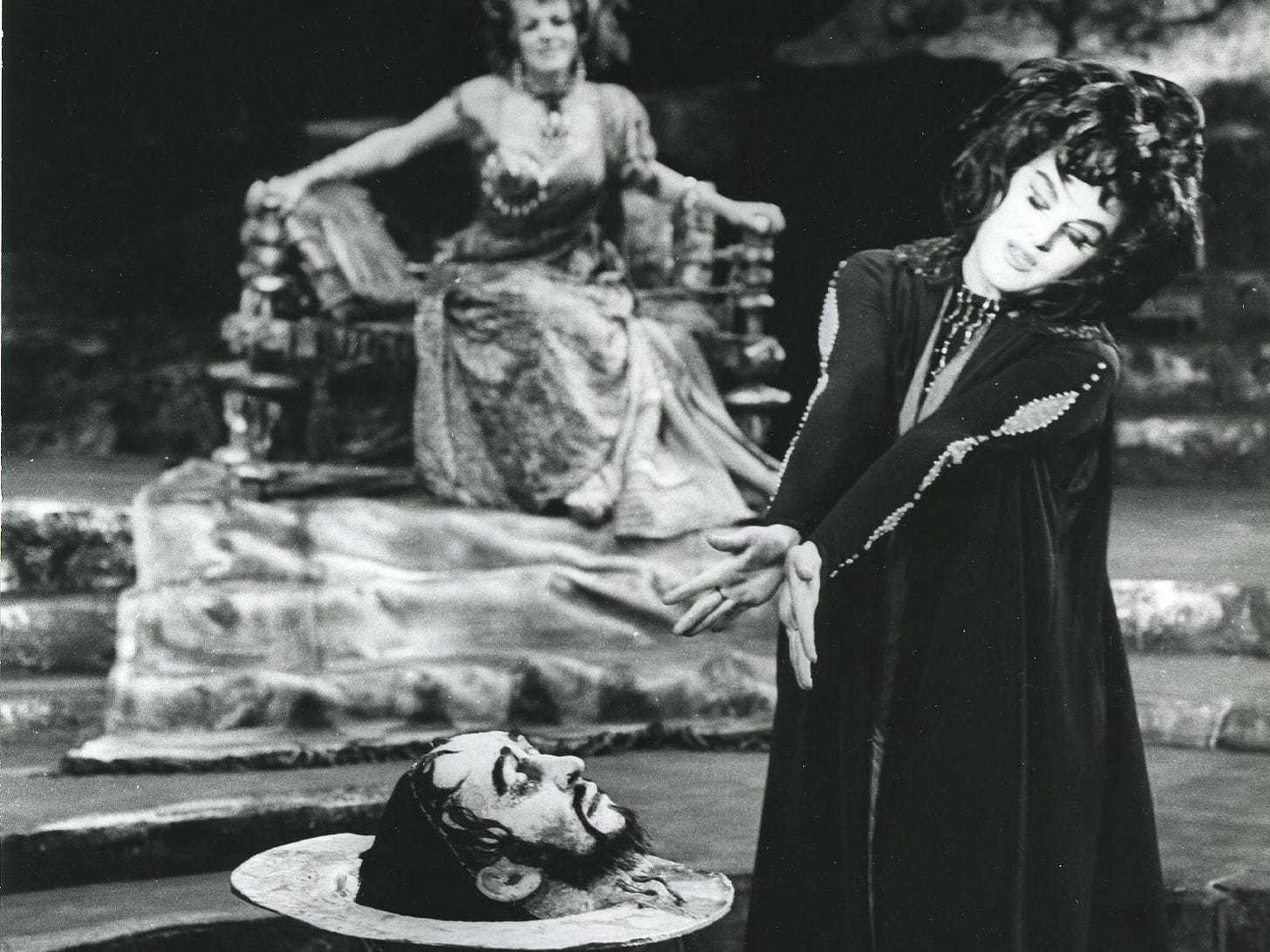
The other night I went to see the new production of Richard Strauss’ opera Salome at the Met, an opera and story with which I have a close connection. The composer took his cues from Oscar Wilde’s play of the same title, which reimagines the death of John the Baptist as a tale of thwarted desire and perversity.
I’ve long thought of the character of Salome, given Wilde’s life, as a gay anti-heroine. She falls into an obsessive love for the fanatical prophet who spurns her over and over again, until finally she has her revenge, seducing her creeper stepfather Herod into giving her the head of John the Baptist; once she has the prophet in her hands, before she kisses his mouth, she asks why he never looked at her, reassuring her dead love that if he had, he would have loved her. Sounds like every gay I’ve known who’s fallen for a straight guy not interested in them. Yet, she does, indeed, kiss his mouth, just like she said she would. Take that, butch.
I was a professional actor all through my 20s and into my 30s, and one of my favorite roles was as King Herod in Wilde’s Salome. The tension between his secular lust and his terror of God made for great theater.
Then for my 30th birthday, I took myself to see a concert version of Strauss’ opera at the Kennedy Center (when it was still a venerable arts institution and not a home to saccharine musicals and business deals) with Deborah Voigt in the title role.
Wilde and Strauss wander into the territory of the Black Madonna, taking the spare biblical tale and turning it into a louche exploration of Eros and Thanatos, sex and death, the two feet of the Dark Goddess.
For that’s what the Black Madonna is, a thinly veiled, Christian version of the Dark Mother that pervades cultures around the world, and not just the ones where we would expect to see a black-skinned deity because of a dark-skinned population; historically, her imagery has been found from Africa to northern Europe. Those Black Goddesses, in whatever region they spring from, always manifest the full experience of life: Desire and loss, the glories and indignities of the body, unrepentant lust, the ecstasy of death. In our strangely repressed and simultaneously overexposed culture, where sex is verboten and yet everywhere from advertising to TikTok, where death is sequestered and yet unspools across our screens in pornographic orgies of violence, the Black Madonna shakes us from our preciousness and our hypocrisies.
In Salome’s final scene in the opera, where she’s given the head of John the Baptist on a silver charger, after an evening of early 20th-century music exploring the edges of tonality and rhythm, at times doing away with any conventional sense of melody, the princess says, “I have kissed your mouth, and your lips had a bitter taste. Was it the taste of blood? No, it was the taste of love. They say that love has a bitter taste. And what of that? What of that? I have kissed your mouth!” And as she comes to the realization that blood and love have the same flavor, the orchestra bursts into the most lush and romantic themes of any opera in any time period.
The Black Madonna strikes us in the squirmy places of our psychology, the places where we’d rather not look, never mind acknowledge, the complexity of our desires and revulsions, but once you dare, once you devote yourself to her path of inquiry, you’ll learn true compassion for others; once you understand your own delicious depravity, without judgement, but neither with self-indulgence, you’ll learn how to love others for their own deep strangeness.
Like a black hole where stars and even light disappear into the void, so do our laws, our morals, our sureties disappear into the heart of the Dark Mother. She gives birth to all things and destroys them. Womb to tomb, nothing is good, nothing is bad. Hero and villain are roles we play, they’re the costumes we wear as actors in this world, but the trick is to know you’re only playing a part, that the costume you wear, the character you play with all its attitudes, beliefs, and biography are not the full story of who you are or even what this world is.
It’s theater. It’s opera. And the directress is the Black Madonna.
Paid subscribers get two additional posts a month, excerpts from the book I’m working on about the Black Madonna. Join the party.
(The video above is of Nina Stemme in the title role.)





